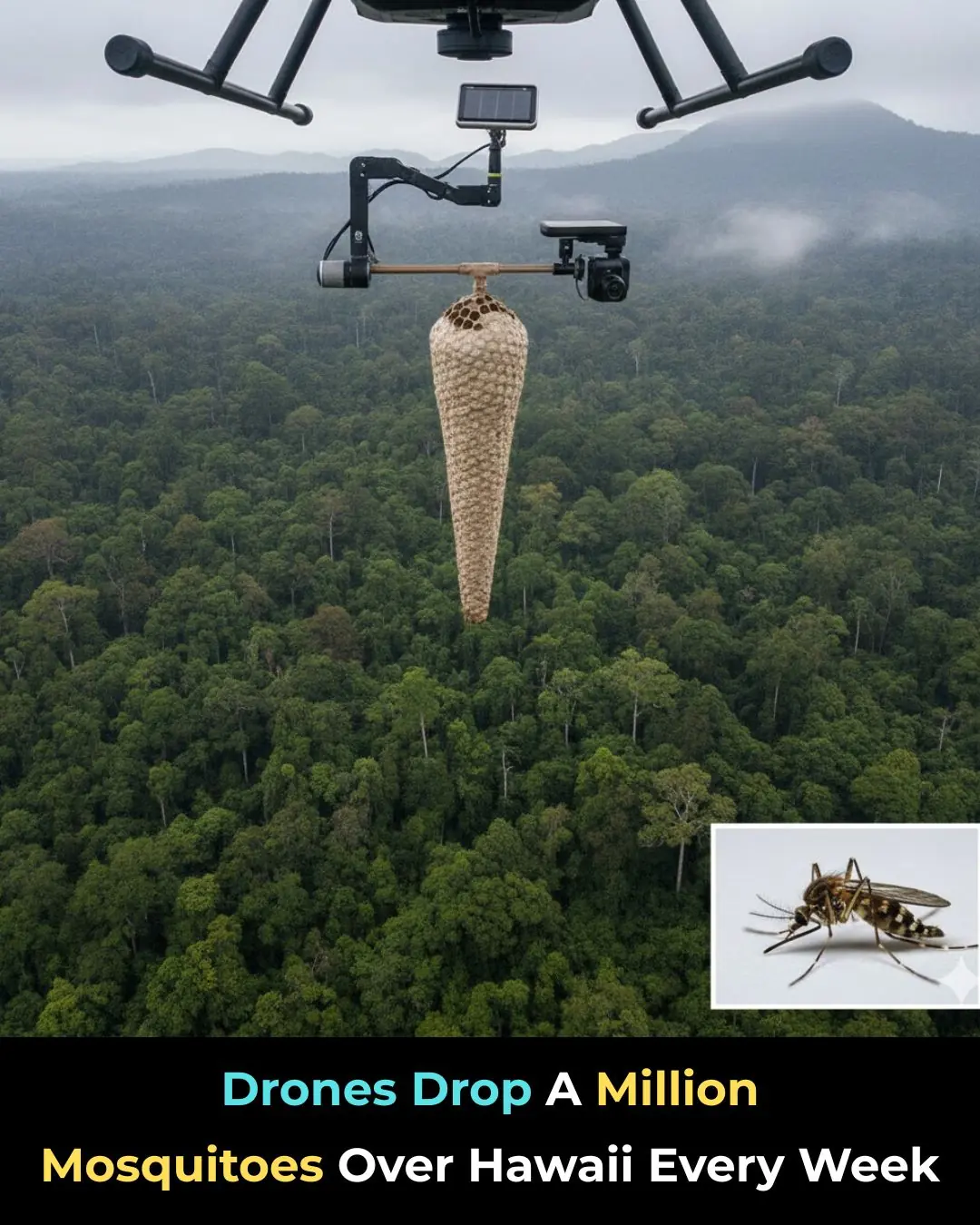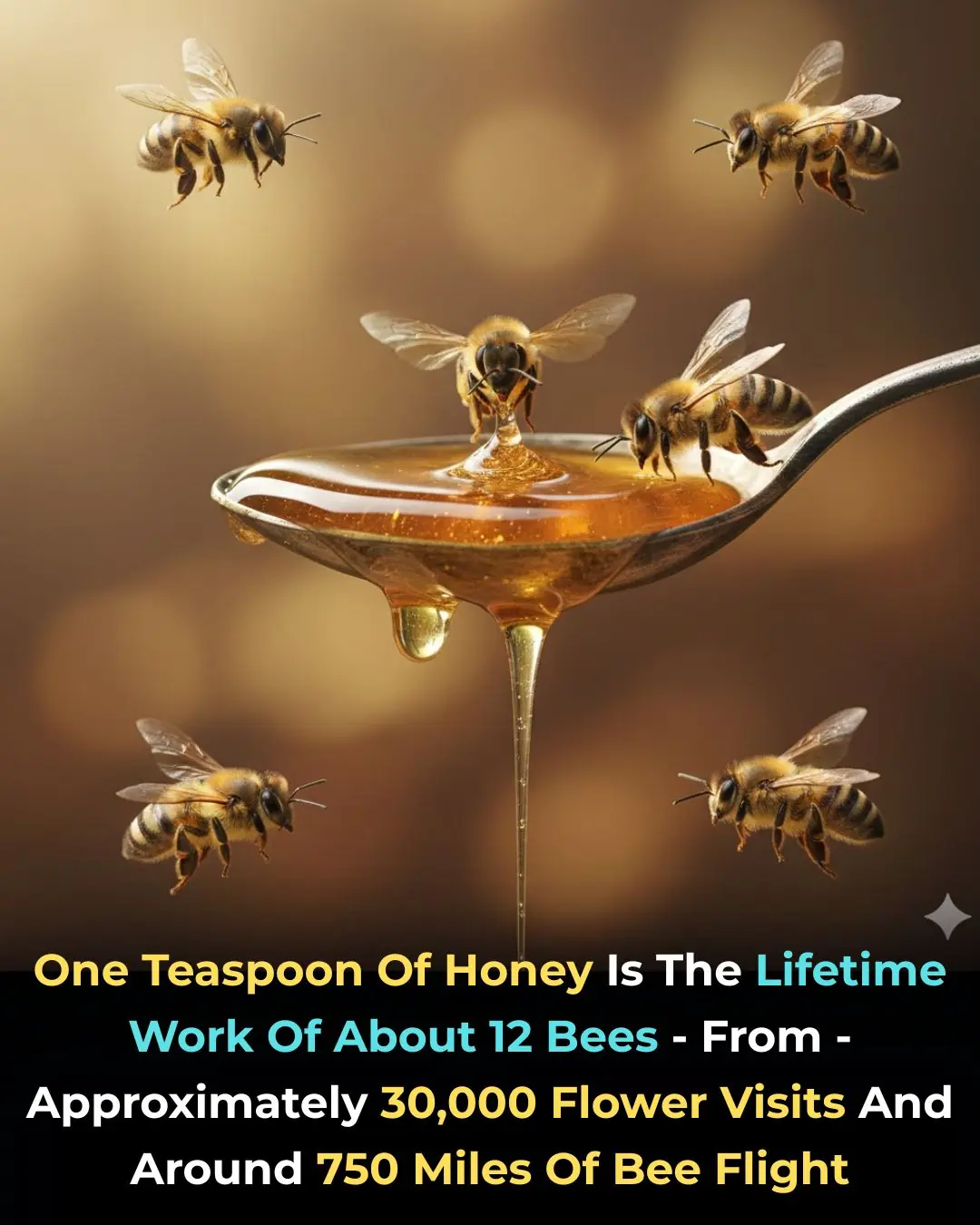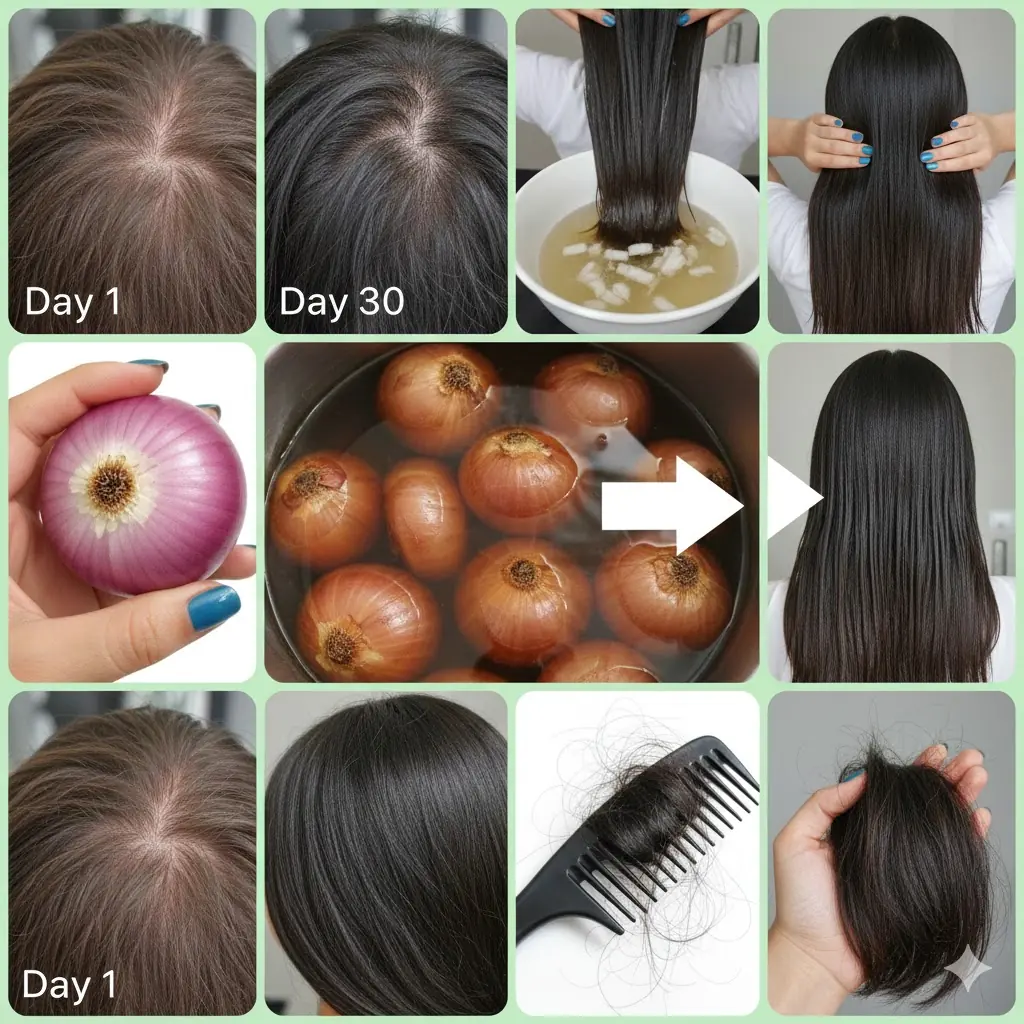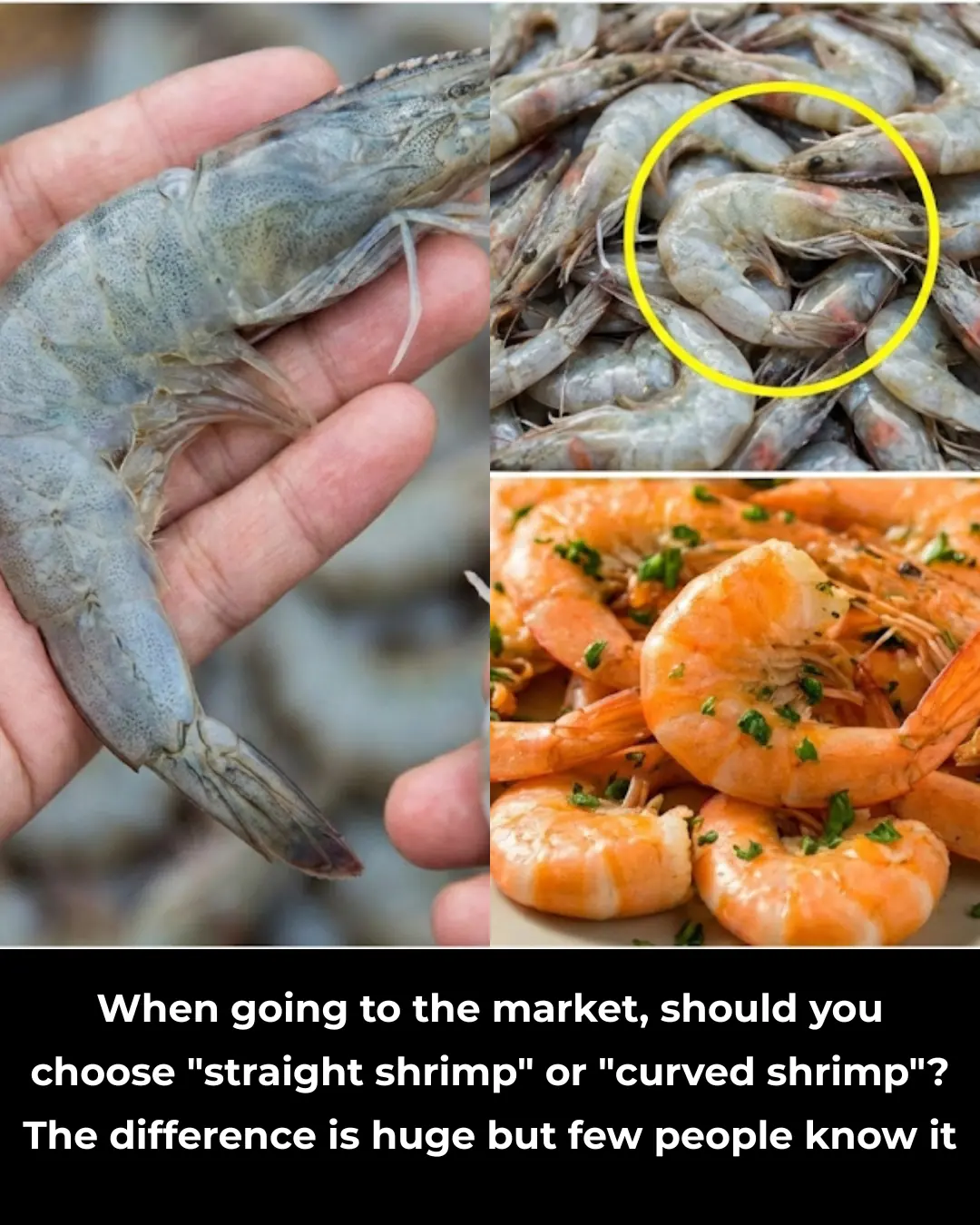
Tiny Wings, Mighty Legacy: How Bees Create Honey and Sustain Life on Earth

Silent, tireless, and often overlooked, bees are among the most powerful forces in the natural world. Their delicate wings carry a legacy far greater than their tiny size suggests. While we enjoy the sweetness of honey at breakfast tables and in herbal remedies, few of us stop to consider the astonishing amount of work and coordination required to create even a single teaspoon of this golden nectar.
In fact, it takes the entire lifetime effort of around twelve bees to produce just one teaspoon of honey. A single bee will make only one-twelfth of a teaspoon in her lifetime — a quantity so small it may seem insignificant. Yet, when thousands of bees work together, a healthy hive can generate more than 60 pounds (over 27 kilograms) of honey each year.
This incredible productivity is a result of one of nature’s most efficient and sophisticated systems.
The Long Journey From Flower to Honey
The process of creating honey begins with a simple but labor-intensive task: gathering nectar from flowers.
A worker bee can visit up to 5,000 flowers in a single day. Over her lifetime, she may cover almost 750 miles of flight, collecting nectar drop by drop. This nectar is stored inside a special organ called the honey stomach, which is separate from her digestive stomach and designed specifically for transporting nectar.
When the bee returns to the hive, the real transformation begins.
She passes the nectar to other worker bees through a process called trophallaxis, where nectar is transferred from mouth to mouth. Each time it is passed, natural enzymes break down complex sugars into simpler ones. At the same time, the bees fan their wings inside the hive, causing water to evaporate from the liquid. This slowly thickens the nectar and turns it into the amber-colored honey we recognize.
Once the moisture content is low enough to prevent fermentation, the bees seal the honey inside wax cells with a thin layer of beeswax, preserving it as food for the colony during colder months or periods without flowers.
This system is not only efficient — it is perfectly designed for survival.
More Than Honey: The Role Bees Play in Our World
While honey is precious, it is not the most important thing bees provide.
Bees are among the world’s most vital pollinators. As they fly from flower to flower collecting nectar, pollen sticks to their bodies and is carried to the next plant. This process allows plants to reproduce, produce fruits, nuts, seeds, and vegetables.
It is estimated that over 70% of the world’s crops rely, at least in part, on pollination by bees and other insects. From apples and blueberries to almonds and coffee, bees help maintain the variety and abundance of foods that feed billions of people around the globe.
Beyond agriculture, bees support entire ecosystems. Their pollination keeps wild plants thriving, which in turn supports birds, mammals, insects, and soil health. Without bees, food chains would collapse, biodiversity would shrink, and ecosystems would unravel.
In essence, bees do not just make honey — they help sustain life on Earth.
A Species Under Threat
Despite their importance, bee populations are currently facing serious decline in many parts of the world. Habitat loss, pesticide use, climate change, disease, and lack of biodiversity are all contributing to this crisis.
When bees disappear, it is not just a loss for beekeepers or honey lovers — it is a warning sign of imbalance in the natural world. The health of bee populations is directly connected to the health of the environment we all depend on.
How You Can Help
Protecting bees does not always require grand scientific projects. Simple actions can make a real difference:
-
Plant native, bee-friendly flowers
-
Avoid or limit the use of chemical pesticides
-
Support local beekeepers and sustainable farming
-
Leave small wild spaces in gardens for pollinators
-
Educate others about the importance of bees
Small choices, made by many people, can help ensure that bees continue to thrive for generations to come.
Tiny Wings, Endless Impact
Bees may be small, but their impact is immeasurable. Each flight, each flower, each drop of nectar contributes to something greater than the sum of its parts. Their tireless work reminds us that even the smallest creatures can carry the greatest responsibility.
So the next time you taste honey, remember: within that single spoonful lies the lifetime journey of dozens of bees, thousands of flowers, and nature’s remarkable gift of balance and abundance.
Let us honor these tiny wings — and protect the mighty legacy they create every day.
News in the same category


Turning Gold Into Sight: A Revolutionary Nanotherapy That Could Help Restore Vision

Young Student's Determination to Support His Education Inspires Viral Act of Kindness

Gary ‘Mani’ Mounfield of Stone Roses and Primal Scream dead at 63

Rumer Willis gives heartbreaking update on dad Bruce’s dementia battle

Watch Jelly Roll's daughter's savage reaction to slimmed-down singer shaving his face for first time in a decade

YOUTUBER WHOSE PARTNER SPLIT UP WITH HIM AFTER ‘HUMILIATING’ WEDDING ACT SPEAKS OUT ON ARREST

STRANGER THINGS' ACTOR'S RARE CONDITION WAS WRITTEN INTO STORY AS HE GREW UP ON NETFLIX SHOW

ALMOST NO ONE WILL KNOW THE NAME OF THE PERSON WHO'S BEEN ON TV THE MOST IN HUMAN HISTORY

ANT AND DEC SNUCK ‘6-7’ MEME INTO I’M A CELEBRITY AND NO ONE NOTICED

Toy Story cast's dramatically different lives as iconic film turns 30

Iman Shumpert’s Daddy-Daughter Photo Started The Most Heartwarming Twitter Thread About Fatherhood

Watch JAY-Z Stop Mid-Concert To Tell This Nine-Year-Old Girl That She Can Be President

‘Breakfast With Dads’: Almost 600 Men Show Up To Mentor South Dallas Middle School Students

Chadwick Boseman, Sheryl Lee Ralph And Brandy All Named In The Hollywood Walk Of Fame Class Of 2024

‘Nobody Ever Shot a Crumbled Piece Of Paper And Yelled “Paul Pierce”‘: The Truth Says Kobe Bryant Was Never Face Of The NBA Sparking Wild Debate

Why the CEO of Black-Owned Beauty Brand The Honey Pot Turned Down a $450M Offer

Long-Lost Brothers Reunite After 20 Years And Discover They Attend The Same College

Steph Curry & Michelle Obama Team Up to Launch Healthier Sports Drink Alternative ‘PLEZi’
News Post

What if you ate 4 eggs a day with the yolks for 30 days?

You’ve Been Taking The Wrong Type of Magnesium All This Time

This Salt, Pepper and Lemon “Miracle-Mix” Can Help Solve 9 Problems

Tooth Decay Repair with Natural Remedies: Can Guava Leaves Help?

Onion Oil for Hair: The Smelly Secret to Long, Lush Locks

What does it mean to walk with your hands behind your back?

The Hidden Power of Mango Seed

The simple circulation secret that can reduce varicose veins naturally

Doctors Reveal What Really Happens When You Eat Avocado Every Day

Home Alone During a Heart Attack …5 Critical Steps That Could Save Your Life

Rice Baby Oil Collagen Cream For Wrinkle Free Glowing Skin

When Buying Shrimp: Should You Choose Straight or Curved Ones? The Difference Is Huge but Few People Know

Don’t Throw Away Overripe Bananas – The Black-Spotted Ones Are a Nutritional Treasure

Hawaii Is Releasing Mosquitoes From Drones — And It Could Help Save Species From Extinction

Your Non-Stick Pan Lost Its Coating? Don’t Throw It Away – Here’s How to Use It Like New

Superfetation: The Rare Phenomenon of Becoming Pregnant While Already Pregnant

How to Choose the Best Apples: The Crispest, Sweetest, and Most Nutritious Ones (Updated for Nov 11, 2024)

When a married woman is obsessed with another man, she does 9 things.
